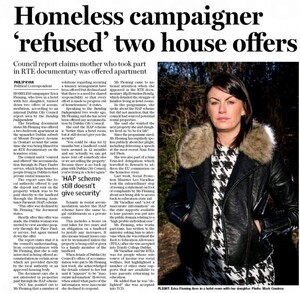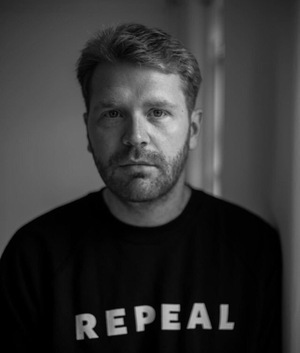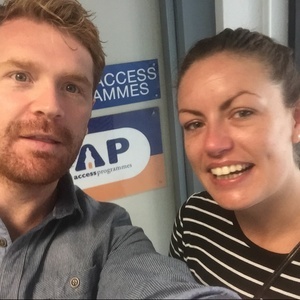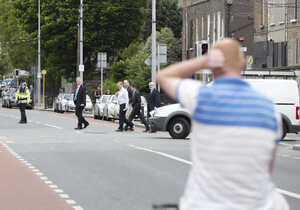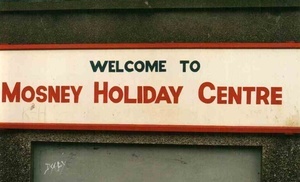From top: O’Connell Street, Dublin: Gary Gannon
Most Irish women avoid certain places for fear of harassment or violence.
Gary Gannon writes:
Our city isn’t safe. Since the recent spate of killings through Dublin, this has been the mantra of both the tabloids and the broadsheet media.
Crime was a major election issue, the calls for greater Garda resources ever present in early morning radio talk shows. I have spoken many times on the issue, in print media and on radio.
I’ve called for more resources for education, for community youth programmes. I’ve fought hard against a narrative which I believe demonises my hard working and vibrant city centre community.
I’ve used this column to deal with the issues of reproductive rights and violence against women before. Women’s equality is a passion of mine, and I am conscious of always trying to advocate for feminist policies as an elected public representative.
And yet, when I talk about crime, and demand long term thinking on crime prevention from our political and community leaders, I don’t mainstream gender into my thinking.
The city isn’t safe is is a mantra I fight, when discussing the Hutch-Kinehan ‘feud’, yet it is true for so many women in Dublin.
Sexual harassment and other forms of sexual violence in public spaces is a serious problem throughout the EU, with one in five women reporting that they have experienced sexual or physical violence since the age of 15.
Research from the EU Fundamental Rights Agenda shows us that the problem is even worse in Ireland, with one in three Irish women reporting such an experience.
Because street harassment is so prevalent, the fear of violence is ever present, with 52% of women in Ireland reporting that they avoid certain places or situations for fear of harassment or violence. This figure is the second highest in the EU.
It’s hard to imagine what it must be like to walk down the street, and never feel truly safe. And yet, that is exactly what these figures mean for the majority of women in Ireland, that their freedom to full participate in society is curtailed by a fear of violence.
A Dublin City Council report into sexual harassment in Dublin City was completed in 2015. The study findings show that sexual harassment is a frequent and distressing occurrence for women and girls in Dublin City, and captured that for many women walking the streets of Dublin, cat calling, wolf whistling, and being shouted at from cars is an everyday occurrence.
I was only made aware of this report when it was highlighted in May’s edition of ‘The Dublin Inquirer’. It has yet to be presented to City Councillors and nor has it featured as a topic on the Joint Policing Committee. In fact there doesn’t appear to have been any follow up on the findings of this report.
There exist practical suggestions in this report which if implemented could vastly improve the level of safety that many people as they engage with our city.
Improving street lighting, confronting dereliction and reorganising pedestrian spaces and parks so that they can contribute to urban safety are just of the recommendations that were made.
In addition there was also a call for a public awareness campaign expressing a zero tolerance attitude for sexual harassment on our streets.
It was also suggested that councils should take the lead in providing educational programmes for the employees of State agencies, the Gardaì and schools to make clear what exactly constitutes sexual harassment on our streets.
That men’s sexual harassment of women and girls has become normalised is indicative of a culture which allows men’s violence against women to flourish.
Throughout the recession, we have witnessed frontline violence against women services being cut to skeletal levels, with some being forced to close their doors.
As one in five women experience sexual or domestic abuse in their lifetime, we still only have one third the recommended refuge spaces for women.
Budget 2017 affords our government once again the opportunity to ringfence funding that can finally lead to the implementation of the Istanbul Convention which leaves no room for doubt; it is the obligation of the state to fully address violence against women in all its forms and to take measures to prevent it, protect its victims and prosecute the perpetrators.
In 2013, Dublin became the first city in the developed world to join the UN Women’s Safe Cities Programme. In doing so our State has already recognised the need to take much greater consideration of gender in our public and planning policy but action rather than lip service must be the culmination of this positive step.
When we talk about crime, we need to ensure that long term planning is our focus as well as crime prevention. We also need to ensure that long term thinking incorporates ways of making cities safer for women to go about their everyday life.
Gary Gannon is a Social Democrats Councillor on Dublin City Counicil for Dublin’s North Inner City. His column appears here every Friday usually before lunch. Follow Gary on Twitter: @1garygannon
Rollingnews







